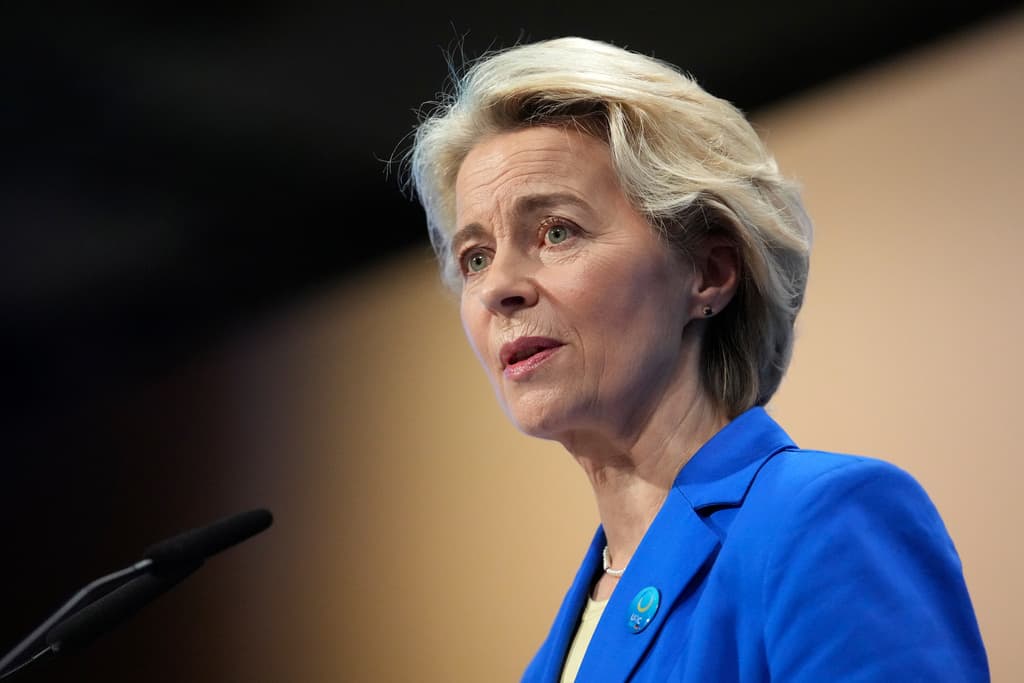The re-elected Commission President has promised to strive for as equal a lineup as possible when her new EU commissioners take office later this autumn.
However, the governments of EU member states do not seem to care. Only seven countries have nominated a woman, in addition to von der Leyen herself.
Only Bulgaria has heeded the German's call to propose both a man and a woman. Many have instead been clear about disliking the idea.
It's a terrible idea to say "I'm going to take two people", where I know that one won't be relevant. That's not how I think you should treat qualified people, said, for example, Prime Minister Ulf Kristersson (The Moderate Party) after the latest EU summit in June.
Changing their minds?
Sweden has, however, made an effort from a gender equality perspective by once again launching a woman as commissioner, in the form of EU Minister Jessika Roswall (The Moderate Party).
The countries that have not done so can, however, expect both carrots and sticks from von der Leyen in the near future.
According to the Times of Malta, the German has so far asked at least three countries to change their minds, including Malta. Among other things, she is said to be offering more influential posts than would otherwise be the case.
At the same time, there are warnings that nominated men may get worse assignments than their countries had hoped for. Not least Ireland – which has put forward Finance Minister Michael McGrath in the hope of a heavy finance post – is said to be in trouble, following reports of harsh criticism from von der Leyen about McGrath being presented without prior consultations.
Tough hearings
The inequality also means that the men who have been nominated risk facing tougher treatment when they are to be heard and approved by the EU Parliament this autumn.
The weak male candidates will have a tough time in the EU Parliament and many will likely be rejected, says Austrian EU Parliamentarian Andreas Schieder to Politico Europe.
The inequality can, at the same time, benefit Sweden and Jessika Roswall, who can hope for a more benevolent treatment in Parliament.
It is not expected to be clear which policy areas the nominated candidates will be assigned to until at least two weeks from now.
The following persons have been nominated to the incoming EU Commission, which will, as usual, consist of one person from each member state:
Women (7): Chairperson Ursula von der Leyen (Germany), Foreign Minister Kaja Kallas (Estonia), and Maria Luís Albuquerque (Portugal), Teresa Ribera (Spain), Jessika Roswall (Sweden), Dubravka Suica (Croatia), and Henna Virkkunen (Finland).
Men (18): Thierry Breton (France), Magnus Brunner (Austria), Valdis Dombrovskis (Latvia), Raffaele Fitto (Italy), Christophe Hansen (Luxembourg), Wopke Hoekstra (Netherlands), Dan Jørgensen (Denmark), Costas Kadis (Cyprus), Andrius Kubilius (Lithuania), Michael McGrath (Ireland), Glenn Micallef (Malta), Victor Negrescu (Romania), Maros Sefcovic (Slovakia), Piotr Serafin (Poland), Jozef Síkela (Czech Republic), Apostolos Tzitzikostas (Greece), Olivér Várhelyi (Hungary), and Tomaz Vesel (Slovenia).
Bulgaria has nominated both a man and a woman: Julian Popov and Ekaterina Zacharieva.
It is still unclear who or whom will be nominated from Belgium.






